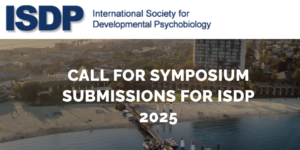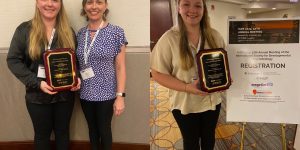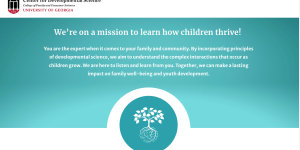Call for Speakers – ISDP DEI Committee Symposium Proposal
The International Society for Developmental Psychobiology Diversity, Equity, and Inclusion Committee is seeking early-career (undergraduate – assistant professor level) investigators from historically marginalized and underrepresented communities and/or doing work on historically marginalized and underrepresented communities to apply for consideration to be part of our second annual committee-sponsored symposium submission for the 2025 Annual Meeting (San Diego, CA Nov. 12th-14th). Topics may vary broadly across the spectrum of developmental psychobiology and represent cellular, animal, and/or human models.








